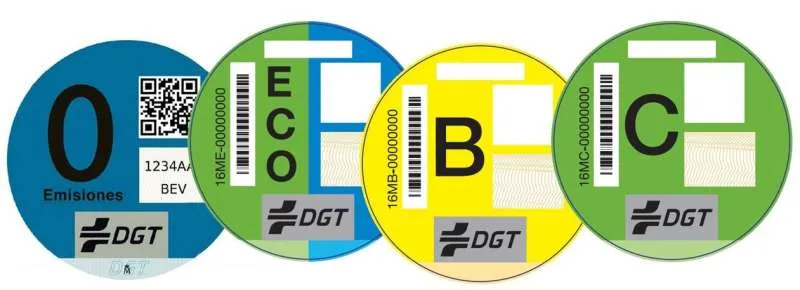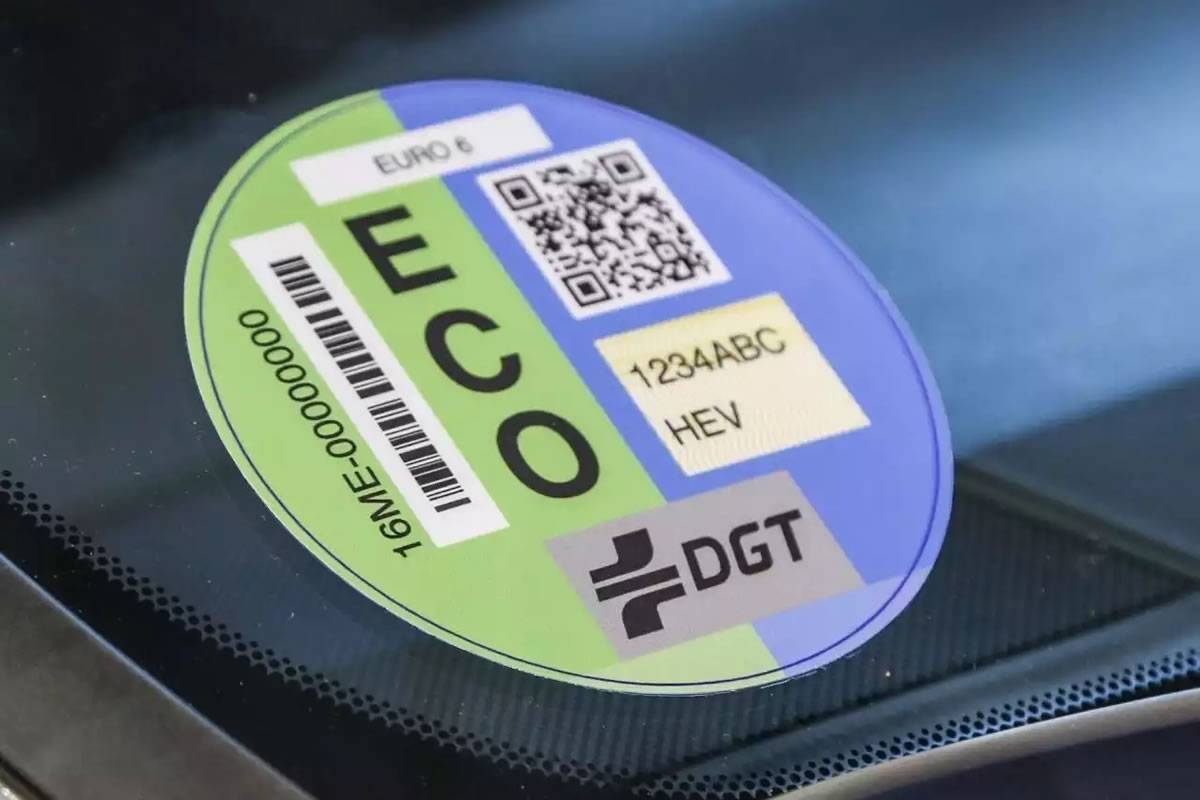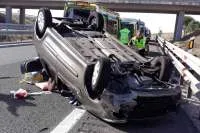Over 25% vehicles in the Canary Islands don’t have an emissions sticker
- 27-07-2023
- Business
- Canarian Weekly
- Photo Credit: DGT
The emissions sticker that most cars display is not only intended to positively discriminate against vehicles that are more respectful of the environment, but is being used in some cities in Spain to restrict traffic on days of high pollution, prohibiting vehicles that don’t have one.
Currently, there are four types of stickers which are issued by the General Directorate of Traffic (DGT), and 27.60% of cars in the Canary Islands don’t have one, according to a report from the employers' association of car dealers, Faconauto.
The four categories and stickers are:
Blue zero sticker: The most efficient vehicles carry the ZERO sticker; these are electric cars and plug-in hybrids. However, they only represent 0.81% of cars on the roads in the Canary Islands.
Eco sticker: Secondly there is the green and blue ECO sticker for hybrid vehicles. This category includes battery electric cars (BEV), extended-range electric cars (REEV), as well as plug-in hybrids (PHEV) with a range of 40 km, or fuel cell vehicles. Only 2.34% of the vehicles in the archipelago have this sticker.
Yellow B sticker: Thirdly, the B or yellow stickler is for petrol cars registered from January 2000, and diesel cars from January 2006. Overall, 22.12% of cars in the Canaries have this sticker.
Green C sticker: Finally, the C or green label is for petrol cars registered from January 2006 and diesel cars from 2014. This is the category with the highest number of vehicles in it with 47.13% of all cars on Canarian roads.

The average age of cars is 15 years old in the Canary Islands.
Faconauto has also analysed the evolution of the average age of cars in the Canary Islands, which is now 15 years old, compared to the national average of 13.9 years. They say the cause of this is due to the weakness of the new car market and the consequent registration crisis, dragged down by availability problems of cars since the pandemic.
Heading towards 2030, Faconauto says that the entire motor industry as well as Public Administrations and political agents, must collaborate to encourage electric vehicles to achieve reduced emissions and meet targets.
The communications director of Faconauto, Raúl Morales, said: "In 2024 there must be a turning point in the registrations of electric vehicles, which means introducing improvements in the Moves Plan and changes in taxation."
Sales and registration of 190,000 electric vehicles are set as a desirable target for 2024 to give a 19% market share. "In order for our country to achieve the decarbonisation objectives established by the PNIEC, the market share of electric passenger cars and SUVs would have to increase by seven points a year between now and 2030, when they would account for 60% of the market and 600,000 registrations", said Morales.



























































